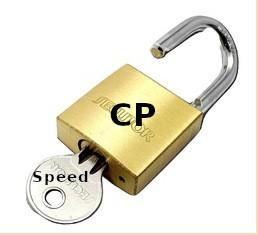My key takeaways
Other people are smart too. With my current rating of #1271 at least 80% of the active accounts are more efficient in solving contests.
Do I mind? Ask Hulk!
OK, seriously: My key takeaways
Speed is key, get all obstacles out of your way.
In my case of a java developer and IntelliJ user it meant installing Egor Kulikov's CHelper. Be sure to manually install the latest beta version.
Besides this I find Jasper van Merle's Chrome Plugin Competitive Companion very helpful. It's a one click to parse a problemset and start coding in the IDE.
Speed is key, for now solving the easy faster is more important than solving the harder.
The Filter on the Problemset page is great to find the right problems to practice on. Keep an eye on the sorting and use the 'tag' function to search for more specific.
If you get stuck on a problem, like you don't have a clue after half an hour, don't hesitate to read the Tutorial that the contest provides.
Once your submission got accepted might be a good time to check how others approached the problem. The status page of a problem, e.g.: Problem 4A — Watermelon allows to do just that. The link in the first column on that page leads to that specific submission. The filter allows to select for the programming language and the sorting helps to find solutions that were faster or used less memory.
Speed is key, try to get it right in you mind before you run the tests.
I have a tendency just run the tests to find out how far off my current solution is. It might be more efficient to get things right in your head before doing that. Even worse are debugging sessions, so take a step back if you find yourself doing the DebugSteppingDance.
mf











What's mf at the end?
my initials :-)
what i learned from this blog
Oh! Nice, thank you.
Key takeaway: stop solving problems rated less than 1300 in practice you're just wasting time not improving.
You might overestimate the level where I'm coming from :-)
Great plots and great bot btw.
Why precisely the 1300 limit? Is that something you read out auf the graph or a rule of thumb?
You are already reasonably consistent at solving 1200 in contest so there's no point practicing <=800, instead you should try for the next level you seem to be failing which is 1300. That's just my opinion though.
I agree. If you practice with problems slightly above your level, you will also get faster in solving easier problems during a contest.
Here are some second opinions.
This is not the right approach for moving forward imo. Speed is necessary, but if someone keeps solving A and B fast, and nothing more, they will never get better. I suggest practicing problems a bit above your level. Getting out of the comfort zone might be scary, but it's well worth it.
Do not see the tutorial in half an hour. See the tags instead. Then think about it more, even a few days. Sometimes ideas come in the most random times. If you can't figure it out still, feel free to see the editorial.
And if you do not know a certain technique mentioned in the tags, search it up, learn it, solve a few problems on the related topic and come back again.
Good luck!